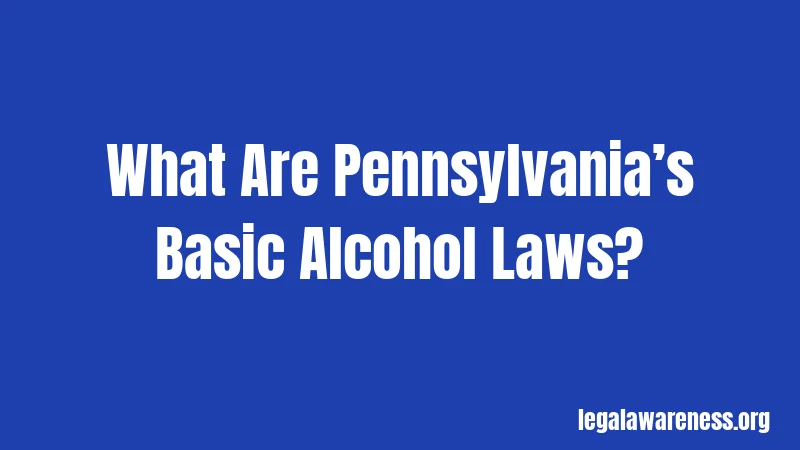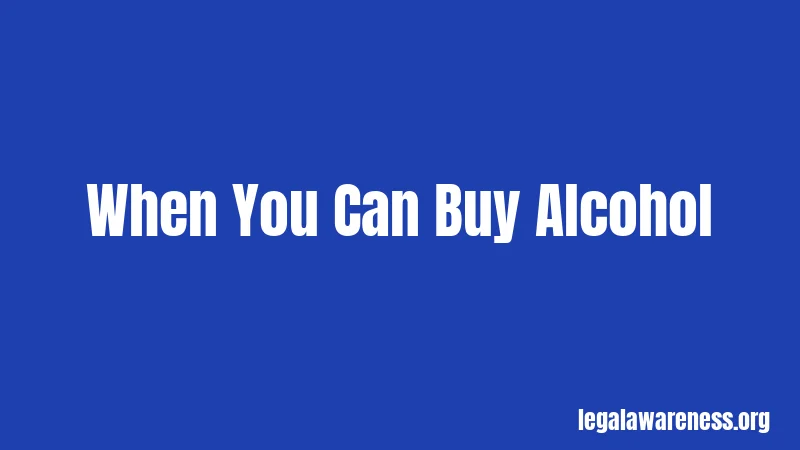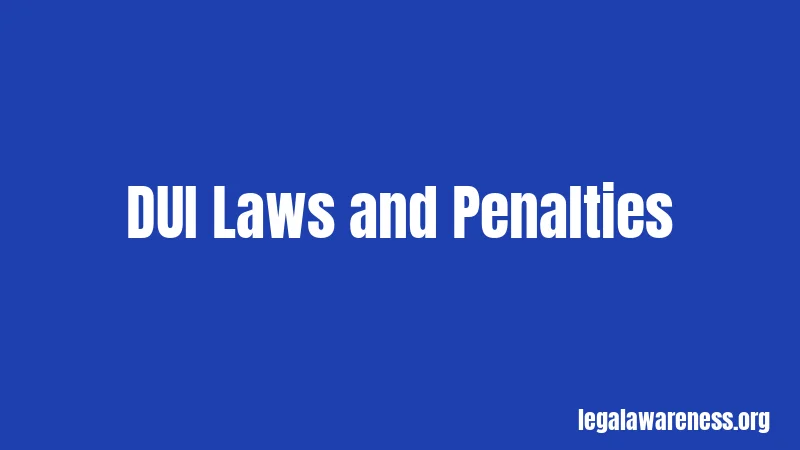Pennsylvania Alcohol Laws 2026: What You Need to Know
Pennsylvania has some of the most complex alcohol laws in the United States. These laws affect where you can buy alcohol, when you can buy it, and what happens if you break the rules. This guide explains everything you need to know about drinking laws in Pennsylvania.
What Are Pennsylvania’s Basic Alcohol Laws?

Pennsylvania controls alcohol sales through state-run stores and strict licensing rules. The state owns all liquor stores called “Fine Wine and Good Spirits” stores. This system started after Prohibition ended in 1933.
The legal drinking age in Pennsylvania is 21. Anyone under 21 cannot buy, drink, or possess alcohol. The state has zero tolerance for underage drinking and driving.
Where You Can Buy Alcohol
State Liquor Stores
Hard liquor and spirits can only be bought at state-run “Fine Wine and Good Spirits” stores. There are about 600 of these stores across Pennsylvania.
Grocery Stores and Gas Stations
Many grocery stores and gas stations now sell beer and wine. They need special licenses to do this. Popular chains like Giant, Weis, Sheetz, and Wawa sell alcohol at some locations.
New Ready-to-Drink Cocktail Sales (2024 Update)
Starting in September 2024, a major change happened. Ready-to-drink cocktails can now be sold at restaurants, grocery stores, convenience stores, and beer distributors. These are canned drinks like margaritas or Jack and Coke with 12.5% alcohol or less.
Restaurants and Bars
Restaurants and bars can sell alcohol for drinking on-site. They can also sell limited amounts to take home. You can buy up to 192 ounces of beer or 3 liters of wine to go.
When You Can Buy Alcohol

Weekday Hours
Most places can sell alcohol Monday through Saturday from 7:00 AM to 2:00 AM the next day.
Sunday Hours
Sunday sales require special permits. With a Sunday sales permit, alcohol can be sold from 9:00 AM Sunday to 2:00 AM Monday. Some restaurants can start serving at 11:00 AM on Sundays.
State Liquor Store Hours
More than 320 state liquor stores are now open on Sundays, typically from 11 AM to 7 PM.
Beer Distributor Hours
Beer distributors can sell beer on Sundays from 9:00 AM to 9:00 PM with a Sunday Sales Permit.
Recent Changes to Pennsylvania Alcohol Laws (2024)
Ready-to-Drink Cocktails
For the first time in 91 years, Pennsylvania consumers can buy liquor-based alcohol outside of state stores. This historic change allows canned cocktails to be sold at thousands of locations.
Extended Happy Hours
Happy hour time limits increased from 14 hours per week to 24 hours per week. Restaurants can now offer more drink specials.
Permanent Outdoor Seating
Restaurants can now make their temporary outdoor seating areas permanent. This was a popular change after the COVID-19 pandemic.
DUI Laws and Penalties

Pennsylvania has strict DUI laws with three levels based on blood alcohol content (BAC).
Level 1: General Impairment (.08 to .099% BAC)
First Offense:
- Up to 6 months probation
- $300 fine
- Alcohol highway safety school
Second Offense: 12-month license suspension, 5 days to 6 months in jail, $300 to $2,500 fine
Level 2: High Rate (.10 to .159% BAC)
First Offense: 12 months license suspension, 48 hours to 6 months in prison, $500 to $5,000 fine
Second Offense: 12-month suspension, 30 days to 6 months in prison, $750 to $5,000 fine
Level 3: Highest Rate (.16% BAC and higher)
First Offense: 12 months license suspension, 72 hours to 6 months in prison, $1,000 to $5,000 fine
Second Offense: 18 months license suspension, 90 days to 5 years prison, $1,500 to $10,000 fine
Additional DUI Penalties
All DUI convictions may include:
- Ignition interlock device (breathalyzer in your car)
- Alcohol treatment programs
- Community service (up to 150 hours)
Underage Drinking Laws
Basic Underage Drinking Penalties
Underage drinking is a summary offense, not a misdemeanor or felony. The penalties are:
First Offense: Maximum 90 days in jail and $500 fine (jail time is rarely given)
Second and Later Offenses: Maximum fine increases to $1,000
License Suspension for Underage Drinking
Operating privileges are suspended for 90 days for a first conviction, one year for a second conviction, and two years for a third or subsequent conviction.
Zero Tolerance for Underage DUI
Those under 21 who drive with .02% blood alcohol content or greater face severe penalties, including 12 to 18 months license suspension, 48 hours to 6 months in jail, and fines from $500 to $5,000.
Medical Amnesty Exception
If an underage person calls for help for someone at risk due to alcohol consumption and provides their name and stays until help arrives, they are immune from prosecution.
Penalties for Providing Alcohol to Minors
Basic Furnishing Law
Anyone who knowingly sells or furnishes alcohol to minors faces a misdemeanor charge with a minimum fine of $1,000 for the first violation and $2,500 for subsequent violations. This can also include up to one year in prison.
False ID Laws
Making or selling fake identification cards is a second-degree misdemeanor with fines between $1,000 and $5,000 for first offense and up to two years in prison.
Special Circumstances
Social Host Liability
Adults who serve alcohol to minors at private parties can be held responsible if the minor is injured or hurts someone else. This applies even at private homes.
DUI with Minors in Vehicle
Additional penalties include a $1,000 fine and 100 hours of community service for a first offense, and a $2,500 fine and 1 to 6 months in jail for a second offense. License suspension increases to 18 months.
Refusing Alcohol Tests
Refusing a blood-alcohol test results in license suspension and forces you into the highest penalty category regardless of your actual BAC.
How to Follow Pennsylvania Alcohol Laws
For Adults 21 and Over
- Never drink and drive
- Don’t provide alcohol to anyone under 21
- Respect serving hour limits
- Buy alcohol only from licensed sellers
For Those Under 21
- Understand that any alcohol possession is illegal
- Know that even .02% BAC while driving has severe consequences
- Don’t use fake IDs – penalties are harsh
- Call for medical help without fear if someone needs it
For Business Owners
- Get proper licenses before selling alcohol
- Follow all serving hour restrictions
- Train staff to check IDs carefully
- Complete RAMP (Responsible Alcohol Management Program) certification
Finding Help and Resources
If You’re Charged with Alcohol Violations
Contact a qualified DUI attorney immediately. Pennsylvania has programs for first-time offenders that might help reduce penalties.
Treatment Resources
Pennsylvania requires alcohol education and treatment programs for many violations. These programs help prevent future problems.
RAMP Certification
Businesses selling alcohol must complete Responsible Alcohol Management Program training. This teaches safe serving practices.
Frequently Asked Questions
Can I drink alcohol at 18 in Pennsylvania?
No. The legal drinking age is 21 for purchasing, possessing, or consuming alcohol.
Can grocery stores sell hard liquor?
No. Only state-run Fine Wine and Good Spirits stores can sell hard liquor. Grocery stores can only sell beer, wine, and ready-to-drink cocktails with proper permits.
What happens if I refuse a breathalyzer test?
Refusal results in automatic 12-month license suspension for first refusal and 18 months for second refusal. You’ll also face the highest DUI penalty category if convicted.
Can restaurants sell alcohol on Sundays?
Yes, but they need a Sunday Sales Permit. With this permit, they can sell alcohol from 9 AM Sunday to 2 AM Monday.
Is it legal to drink in public parks?
This depends on local laws. Many municipalities prohibit public drinking. Always check local ordinances before drinking in public spaces.
Final Thoughts
Pennsylvania’s alcohol laws are complex but getting simpler. Recent changes in 2024 made it easier to buy ready-to-drink cocktails and extended happy hour times. However, DUI penalties remain severe, and underage drinking laws are strictly enforced.
The key is understanding the rules and following them. When in doubt, don’t risk it. The penalties for breaking alcohol laws can affect your life for years.
Remember that these laws exist for public safety. Drinking responsibly protects you and others on the road and in your community.
